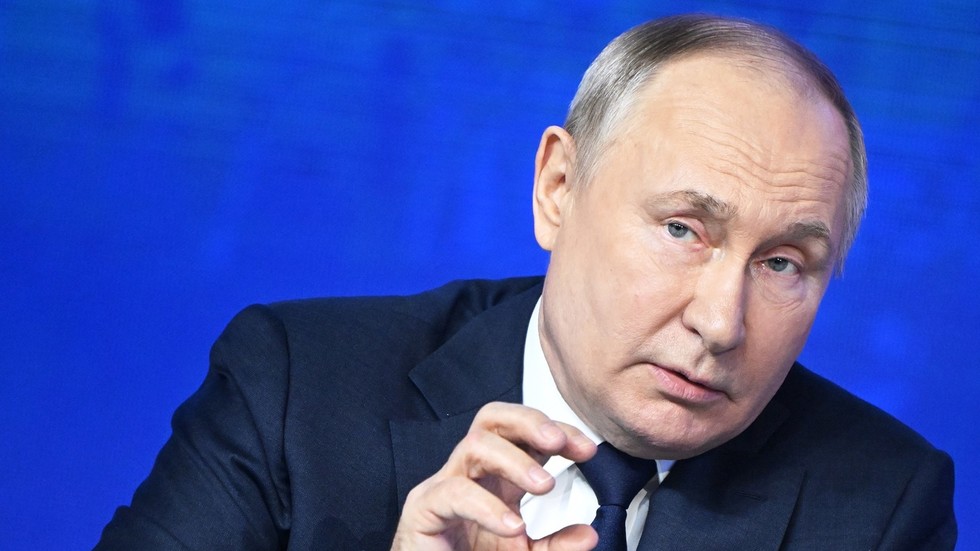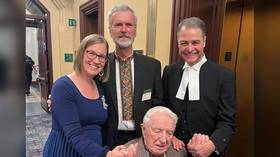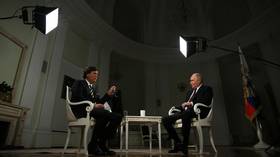
A notion at the root of Nazi ideology has spread in the West, the Russian president has said

FILE PHOTO © Sputnik / Sergey Guneev
Nazism was rooted in the idea of “exceptionalism” that has now become widespread in parts of the West and requires a multinational approach to defeat, Russian President Vladimir Putin has said.
Speaking to journalist Pavel Zarubin on Wednesday, Putin touched on the revelations in the German press that Foreign Minister Annalena Baerbock’s grandfather had been a passionate Nazi.
“I don’t think the current generation of Germans has to bear the full political responsibility for everything Nazi Germany did,” said Putin, calling it “unfair” to label the entire German people as such.
The far bigger problem, the Russian leader added, was that many countries have adopted the notion of being “chosen” or “exceptional,” telling Zarubin that “this is how Nazism began.”
“If this is so widespread, we should also think about building anti-fascist and anti-Nazi propaganda at a a global level,” Putin said. Such an endeavor would be truly effective only if it comes from society, and not from the state – no matter which state, he added.

Speaking with the employees of the weapons-maker Uralvagonzavod in Nizhny Tagil on Thursday, Putin repeated that Russia must maintain zero tolerance for Nazism. He argued that the heirs of those who supported the Nazis during the Second World War are now being backed by the US to revive the murderous ideology of Stepan Bandera and Roman Shukhevich in Ukraine, leading to the present conflict with Kiev.
He rejected the claims by modern Ukrainian nationalists that Bandera, Shukhevich and others weren’t actually Nazis, because they had been imprisoned by Germany at one point during the war. According to Putin, Hitler’s regime punished the Ukrainian collaborators for trying to make a deal with Western Allies once they realized the Third Reich was about to lose, nothing more.
“They had been Nazis all along and they remained Nazis. But their offspring, the neo-Nazis, are absolutely identical to those we fought during the Great Patriotic War,” the Russian leader said.

Putin has accused the current Ukrainian government of embracing Nazi ideology and turning their country into an enemy and a threat to Russia. The Kremlin has listed “denazification” of Ukraine as one of the key objectives of the current military operation.
Numerous Ukrainian units have embraced insignia and iconography used by the Nazi German military and the SS. Andrey Biletsky, the founder of the notorious ‘Azov’ militia – now part of the Ukrainian army – told Western reporters in 2014 that he chose the group’s symbols – the SS Wolfsangel rune and Heinrich Himmler’s Black Sun – because they had been “used by Germans” in WWII. The government in Kiev and many media outlets in the West have nonetheless dismissed claims of Nazi influence in Ukraine as “Russian propaganda.”




